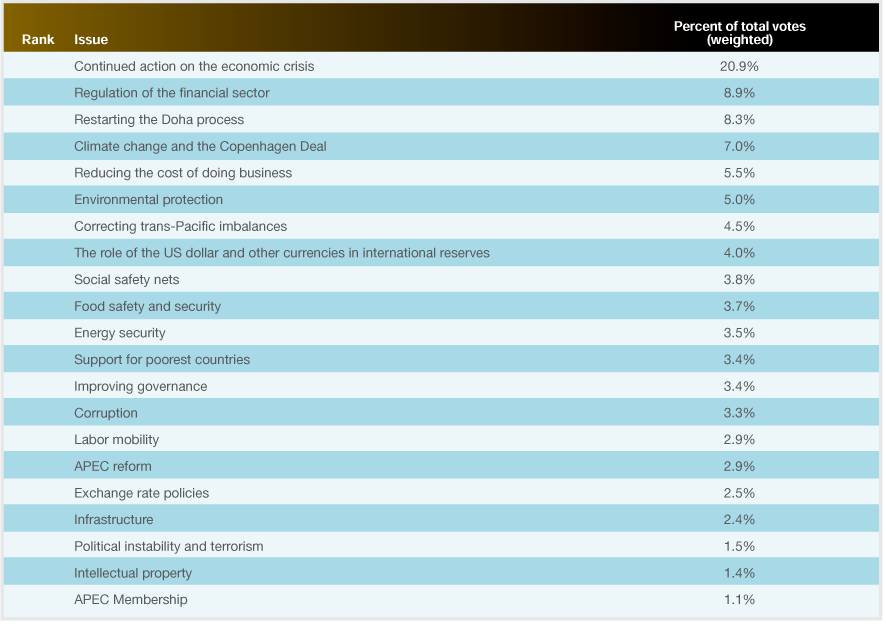ANNEX - State of the Region Survey
Respondent Profile:
The panelists were selected by PECC’s member committees from the academe; business; government; civil society on the basis of their level of knowledge of the Asia-Pacific region. The criteria given for the selection of panelists were as follows:
- Government
Panelists should be either decision-makers or senior advisors to decision-makers. As a guide, the government respondents last year included a number of former and current Ministers, Deputy and Vice-Ministers, Central Bank Governors and their advisors for Asia Pacific issues, current APEC Senior Officials, and a number of former APEC Senior Officials.
- Business
Panelists should be from companies who have operations in a number of Asia-Pacific economies or conduct business with a number of partners from the region, this might include each economy's current ABAC members as well as past ABAC members.
- Research Community/Civil Society/Media
Panelists should be well-versed in Asia-Pacific affairs, being the type of individuals whom the governments, businesses, and the media would tap into to provide input on issues related to Asia-Pacific cooperation. These included Presidents of institutes concerned with Asia-Pacific issues, heads of departments, senior professors, and correspondents covering international affairs.
Number of Respondents: 394
Number of respondents by sector:

The survey analysis includes breakdowns for sub-regional groupings, namely Oceania; North America, Northeast Asia; South America; and Southeast Asia.
For this survey we define those sub-regions as:
- Oceania: Australia; New Zealand and Papua New Guinea
- North America: Canada; United States; and Mexico
- Northeast Asia: China; Japan, Hong Kong SAR, Korea, and Chinese Taipei
- South America: Chile; Colombia; Ecuador; and Peru
- Southeast Asia: Brunei; Indonesia; Malaysia; the Philippines; Singapore; Thailand; and Vietnam
Number of respondents by sub-region

What are your expectations for economic growth over the next 12 months compared to the last 12?

How satisfied are you with the responses of the following economies to the crisis? Please use a scale of 1-5, with 1 representing very dissatisfied and 5 very satisfied.

How satisfied are you with the responses of the following international institutions to the crisis? Please use a scale of 1-5, with 1 representing very dissatisfied and 5 very satisfied.
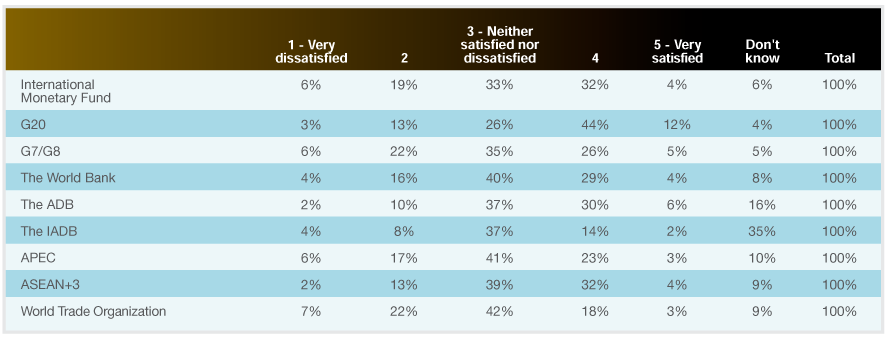
Please indicate your agreement or disagreement with the following statements.
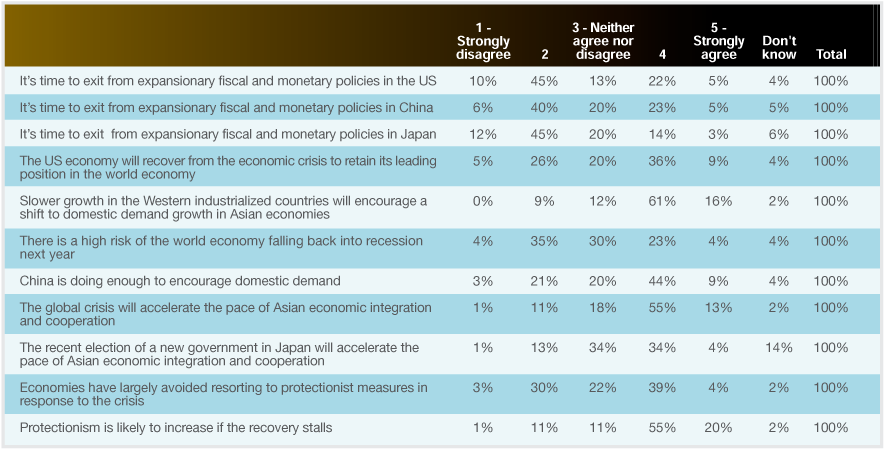
Please rate the importance of the following policy objectives for achieving sustained growth in the Asia-Pacific over the next five years.
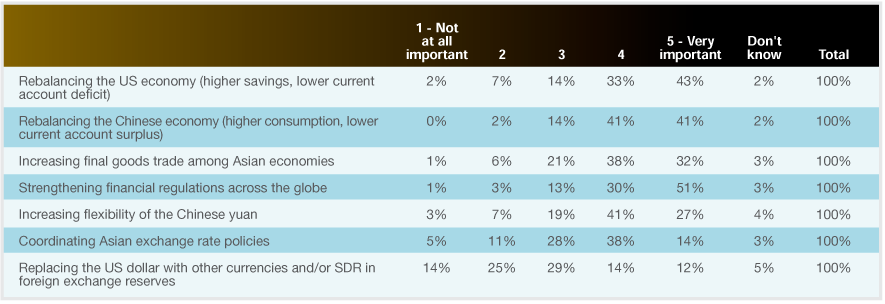
Please rate the importance of the following “growth engines” in stimulating economic growth in the Asia Pacific over the next five years. Please use a scale of 1-5, with 1 representing 'not at all important' and 5 - very important.

Please indicate your agreement or disagreement with the following statements:
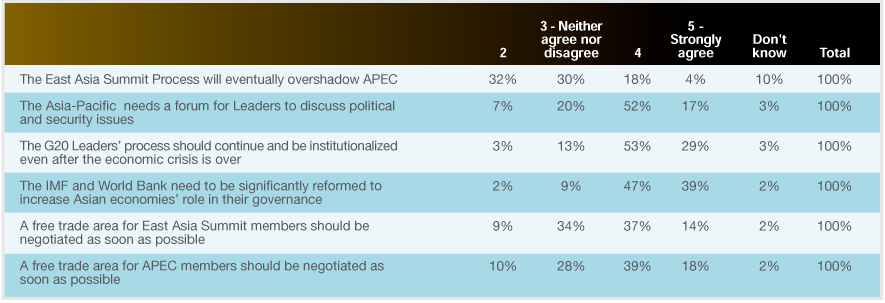
When do you think the following Asia-only regional institutions will be created?

What are the most important challenges facing APEC? Please use a scale of 1-5 with 1 representing 'not at all important' and 5 representing 'very important'
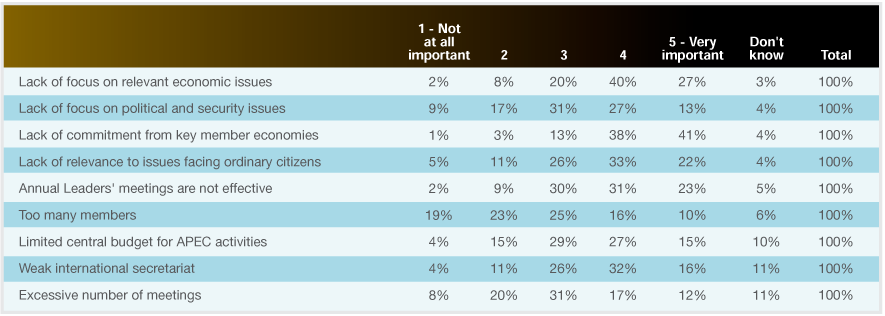
What do you think should be the top 5 priorities for APEC Leaders to discuss at their upcoming meeting in Singapore?
